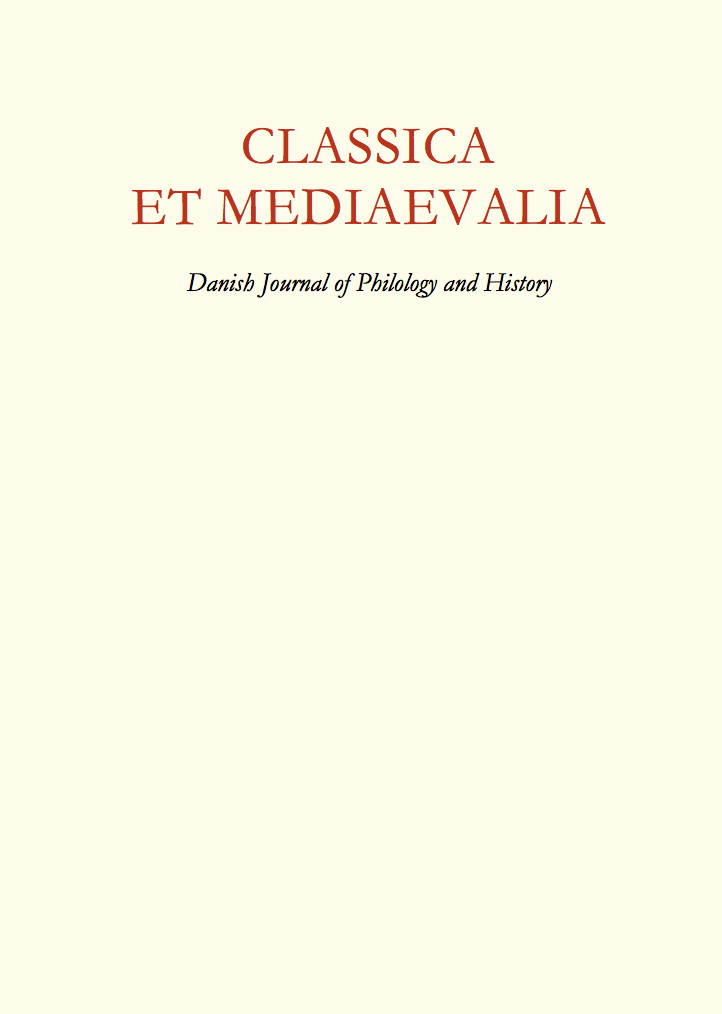Foreseeing the Past: Probability and Ancient Greek Decision-Making
DOI:
https://doi.org/10.7146/classicaetmediaevalia.v70i.128157Resumé
The article explores the concept of probability in ancient Greece from a non-scientific perspective and shows how ancient decision-makers used historical data to make calculated decisions and speculate about the future. First, the paper considers how quantitative data was used by ancient Greek communities to make economic projections. It then shows how ancient Greek generals used the same conceptual tools to determine their odds of victory by tallying up and comparing the number and composition of armies and resources available to them and their enemy. In the third section, the paper examines how qualitative probability was articulated through the language of hope and likelihood to formulate chances of success in moments of crisis. Finally, the paper shows that ancient decision-makers implemented “power laws” to adapt to changing circumstances and the flow of new information, as they sought to improve their odds of success relative to their rivals.
Downloads
Publiceret
Citation/Eksport
Nummer
Sektion
Licens
Copyright (c) 2021 Paul Vădan

Dette arbejde er licenseret under en Creative Commons Attribution 3.0 Unported License.
Authors who publish with this journal agree to the following terms:
- Authors retain copyright and grant the journal right of first publication with the work simultaneously licensed under a Creative Commons Attribution License that allows others to share the work with an acknowledgement of the work's authorship and initial publication in this journal.
- Authors are able to enter into separate, additional contractual arrangements for the non-exclusive distribution of the journal's published version of the work (e.g., post it to an institutional repository or publish it in a book), with an acknowledgement of its initial publication in this journal.
- Authors are permitted and encouraged to post their work online (e.g., in institutional repositories or on their website) prior to and during the submission process, as it can lead to productive exchanges, as well as earlier and greater citation of published work (see The Effect of Open Access).





